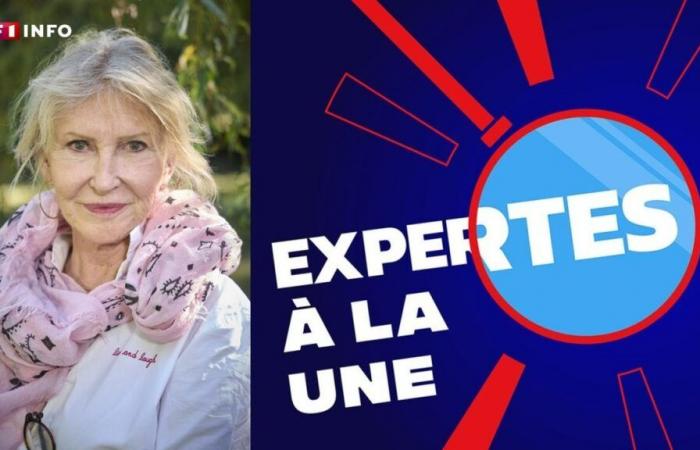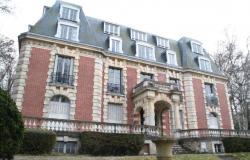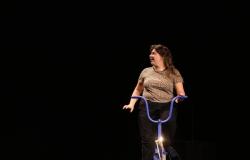Afghanistan, Rwanda, Lebanon, Chechnya… Marine Jacquemin covered all the conflicts from 1985 to the 2010s.
The former TF1 senior reporter retraces her journey in her book “My Wars”.
In the Expertes à la une podcast, presented by Christelle Chiroux, she tells anecdotes about her job and explains how luck smiled on her.
Follow the full coverage
With them
Pope Francis, Mother Teresa, French presidents, Taliban ministers… Marine Jacquemin met many diverse characters. For nearly thirty years, the senior reporter traveled the whole world and areas of conflict for TF1 in particular. Afghanistan, Iraq, Rwanda, Lebanon, Chechnya… She saw colleagues and friends die before her eyes, endemic poverty and even heartbreaking children. She tells in Christelle Chiroux’s “Expertes à la Une” podcast, to listen to above: “I was born happy and I hope to die happy. I know what tragedies are. You should never show your emotions on the field, smile at people who are dying and accompany them.”
Marine Jacquemin is not afraid of dying. In front of young armed soldiers, she does not show it. “I always considered that they looked at me as a sister, a mother or a grandmother. They saw me as a woman and not as someone who could attack them.” To François Mitterrand, she confided another, more intense fear: “I was afraid of being kidnapped and raped. Death is inevitable. But what scares me is finding myself in a difficult situation and not being able to get out of it.”
Marine Jacquemin’s little trick: finding the little story in the big story. “This little piece of history is, for example, the Kabul zoo. My translator takes me and makes me meet the director of the zoo. He shows me around: I see a lion, blind, which has taken a rocket in the face, an anorexic bear, very aggressive little monkeys because they are afraid, an elephant who also got hit by a rocket… This zoo is the metaphor of the city. I am opening the. 8 p.m. newspaper In the process, we received more than 20,000 euros to rebuild the zoo.
The chance to survive and meet people
Being a war reporter means being lucky. To stay alive, first of all, but also to meet people. Throughout her book, Marine Jacquemin relates how much she smiled at him. In Sicily, for example, a combination of circumstances allowed him to meet Judge Falcone: “I arrive at the Palermo courthouse. There are several roadblocks, but I forgot my papers. I say that I am a journalist and that I want to interview Giovanni Falcone. Everyone around is laughing. A guy takes me have a coffee and get me a few minutes with him The next day, the boy who took me into the palace admits to being the judge’s driver and explains to me that the night before, Giovanni Falcone had dreamed that a blonde wanted him. meet in the Sistine Chapel.”
One day, in an orphanage in Kabul, a little boy asks Marine to share his meal: “It was beans with a piece of tomato and a little meat. I melted with happiness and I told myself that I was going to adopt him. Later, while going to collect mines, he jumped on one of them her. I asked myself what I could do for this boy.” A few months later, the reporter moved Murielle Robin: “A little girl is dying after ingesting brick sawdust. Murielle Robin calls me and asks me what she can do. I tell her, a hospital in Afghanistan. Martin Bouygues helped us with a check with a lot of zero .” The reporter then joined forces with the association La Chaîne de l’Espoir and the Aga Khan Foundation to operate the hospital on site.
“We have to question ourselves”
Should we stop covering wars? Marine Jacquemin responds in the negative: “I often wonder what purpose my reporting has served. The same wars continue. Between Israel and Palestine, it has been going on for 76 years for example.” However, she launches this message with emotion: “We must continue to send journalists to the conflict areas, even if sometimes young people may stay there. This is very important, and it is not artificial intelligence that will help us look at reality and bring back democracy.”
How to move forward? The journalist asks herself every day what she can do to make the world better: “You have to question yourself, give yourself goals and not let yourself get carried away. This is what I wanted to convey in my book.”
- “My wars, confidences of a great reporter” available from Éditions de l’Observatoire






